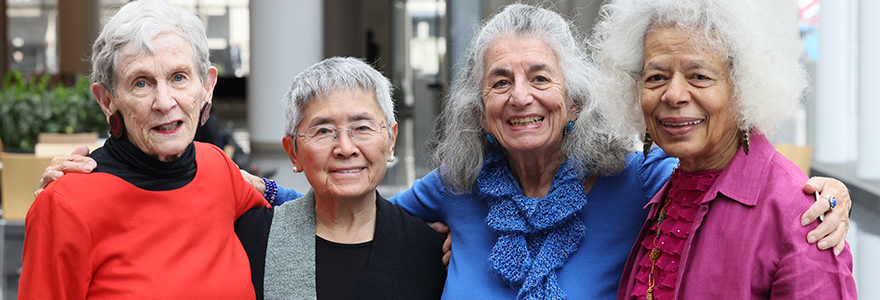About
Contact Us
519-661-2111 x82089
1-888-688-8368 (toll-free)
superagingcanada@uwo.ca
1201 Western Road
Elborn College
London, ON N6G 1H1
About SuperAging Canada

Welcome to the Canadian home of the SuperAging Research Initiative!
This initiative, funded through the National Institutes of Health, began 10 years ago at Northwestern University in Chicago, Illinois, and has grown to include additional US sites as well as our first Canadian site at Western University in London, Ontario.
A new strength-based approach
This program of study began as a new, different way to study Alzheimer’s dementia and other cognitive impairments. In the past, research in this area has focused on deficits, meaning that researchers examined things that “go wrong” in people’s brains as they age with the aim of reversing them.
Our approach is different – we are focused on identifying factors that contribute to healthy cognitive aging (i.e., things that are “going right”). By taking a strength-based approach rather than a deficits-based approach, we aim to identify protective factors that support healthy cognitive aging.
Participants join this study because they want to help their peers who cannot participate and because this research will benefit future generations.
A sneak peek at what we know
While this study is ongoing, SuperAgers have already taught us several important lessons:
- SuperAgers can maintain youthful memory performance over time
- SuperAging is possible over the age of 100
- SuperAgers have youthful brain structure
- SuperAgers report having strong social relationships
- Family history of SuperAgers varies:
- Some have families with a history of longevity
- Others have families with a history of Alzheimer’s or related dementia
- SuperAgers tend to have less Alzheimer’s pathology
- SuperAgers have an abundance of a special type of neurons (brain cells) called von Economo neurons (VENs)

